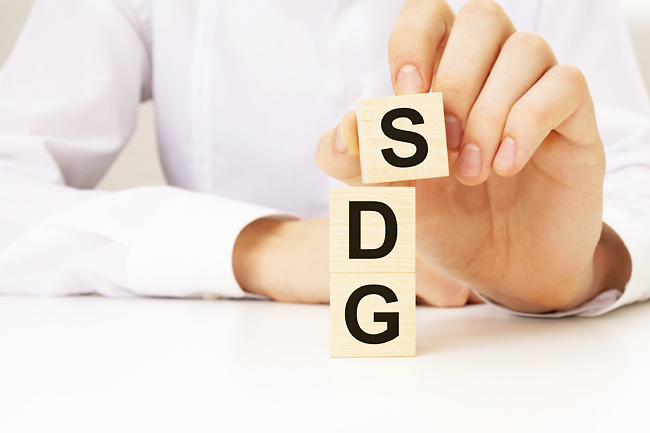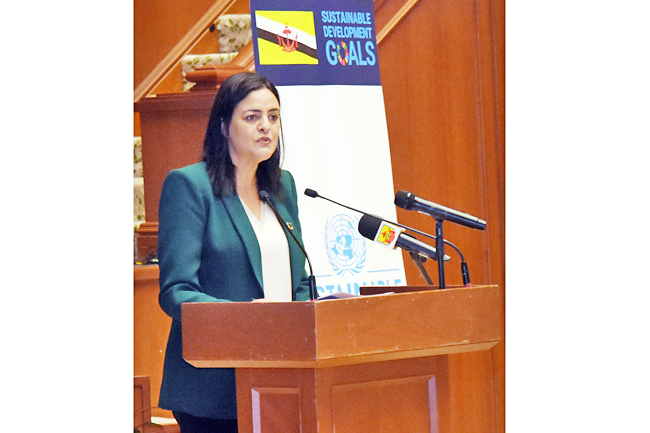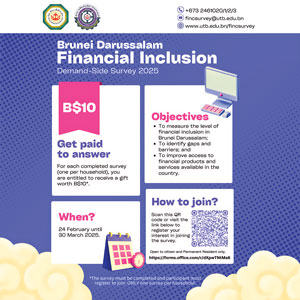James Kon
United Nations Resident Coordinator in Malaysia, Singapore, and Brunei Darussalam Karima El Korri at the opening session of the Second Voluntary National Review (VNR) workshop for Brunei Darussalam on Monday shared that the Sultanate is on track to achieving most of the Sustainable Development Goals (SDGs) where the country’s performance globally and in the Asia Pacific region and the ASEAN sub region, shows clear progress on many targets.
However, as highlighted in its first VNR and in the Brunei Darussalam Sustainable Development Goals Annual Report, more remains to be done, especially as the pandemic revealed pressure points and key areas where Brunei could do better, she said.
The United Nations (UN) official also expressed that Brunei Darussalam’s proposal to host the ASEAN Centre for Climate Change as a hub for research and capacity building is an encouraging step.
The COVID-19 pandemic, she explained, has laid bare profound faultlines and raised fundamental questions about the ability of governments and societies to withstand shocks.
The pandemic has also put to the test hard-won development gains, slowing or reversing progress in many countries.


As the world tries to turn the pandemic’s dark page, she said, “It has been hit by a number of interlinked global crises. We are facing challenges on a scale completely new to us.
“We were still grappling with the aftermath of COVID-19 when the war in Ukraine unleashed energy, food, and cost-of-living crises of unprecedented severity and scope. The triple planetary crisis of climate breakdown, biodiversity loss and pollution is gaining strength in face of inadequate management.
“This all means an uncertain, uneven and slower than anticipated recovery, with significant accumulated social deficits.”
She said, “So are the SDGs still relevant, one might ask? The answer is definitely and undeniably yes. Seven years on, and despite major setbacks, the SDGs remain our North Star. They are more valuable than ever and cannot afford any further delays. We need to act now. And today’s meeting is a positive sign that Brunei is still on board.”
El Korri shared, “The High-Level Political Forum on Sustainable Development (HLPF) theme in 2023 will be ‘Accelerating the Recovery from the coronavirus disease (COVID-19) and the full implementation of the 2030 Agenda for Sustainable Development at all levels.’
The forum, she added, takes stock of regional forums, of governments and multiple stakeholders’ messages, and adopts an intergovernmental political declaration, negotiated at ministerial level.
“It serves to renew the commitment towards the universal goals and identify emerging priorities going forward.”
The 2022 Ministerial Declaration recognised the 2030 Agenda as “the blueprint for building back better” from the pandemic, Karima said.
Every four years, and under the auspices of the General Assembly, she said world leaders meet at the SDG Summit.
The 2019 SDG Summit marked the launch of the Decade of Action. The 2023 Summit will be a critical milestone as it will convene exactly mid-point into the 2030 Agenda time frame.
It is highly expected to mark the beginning of a new phase of accelerated progress towards the SDGs, she said. The 2030 Agenda and SDGs, El Korri highlighted represent a precious global commitment to achieve a just, inclusive and sustainable future for all humanity.
“Since its adoption, it has seen unprecedented ownership by peoples and people. It is also a centrepiece, crossroad for other breakthrough global agreements and frameworks that complement and reinforce the SDGs: The Paris Agreement, the Sendai Framework on Disaster Risk Reduction, the Addis Ababa Action Agenda on Financing for Development, the New Urban Agenda, and the Global Compact on Migration.”
She said in 2021 the UN member states welcomed the UN Secretary-General’s 2021 Our Common Agenda report as a concrete vision on how to unite the international community around solutions to the complex realities we face today. “Our common agenda is a future-looking framework to turbocharge the SDGs, manage global shocks and crises more effectively, in order to deliver now and be fair to the future generations.
“It is also a new tool to upgrade the United Nations and ensure it is better equipped to deliver its mandate as a facilitator of multilateral solutions that help governments build back better.”
Building back better, El Korri explained will require transformational change, economic policies that ensure growth, decent jobs and sustainable development.
“This means an even more socially inclusive Brunei that provides opportunities for all and leaves no one behind; and one which is environmentally sustainable, protecting people from the impacts of climate change and curbing degradation of the environment and natural resources.”
While advancing the SDGs is about mobilising everyone everywhere, and local action is a key enabler of progress. It is therefore vital that the government advocates and incentivises a whole-of-society approach.
This will require effective social mobilisation to affect changes in behaviours, together with private and voluntary investments and solutions, Karima said. As part of the whole of society are young people, she iterated that youth are crucial in delivering a lasting positive change.
“As a vanguard of the future, they help frame the issues and priorities that matter most, with fresh and inherently progressive perspectives. If empowered, they can be agents of change by making tangible contributions through volunteerism and community participation, and in the conduct of their everyday lives.
“An effective and balanced participation of a diverse and inclusive range of major groups is equally important to ensure all dimensions of sustainable development are given due attention: women and girls, older persons, people with disabilities, indigenous groups, migrants, and other components of the Bruneian society.”
The national workshop, Karima pointed out, provides a unique opportunity for Brunei’s SDG journey to be truly transformational. The VNR conducted for a second time involves stronger analysis of interlinkages across the SDGs and their targets. It enables a thorough understanding of the policy implications, where they create synergies and where they require trade-offs.”
This second VNR, she added, comes at a time when it is possible to assess progress by looking at the data, but as importantly and complementarily, by evaluating the impact of the measures taken since the last review.
She also reaffirmed that the UN stands ready to support Brunei Darussalam’s Government and all stakeholders through advocacy, knowledge sharing, data tracking and reporting.




